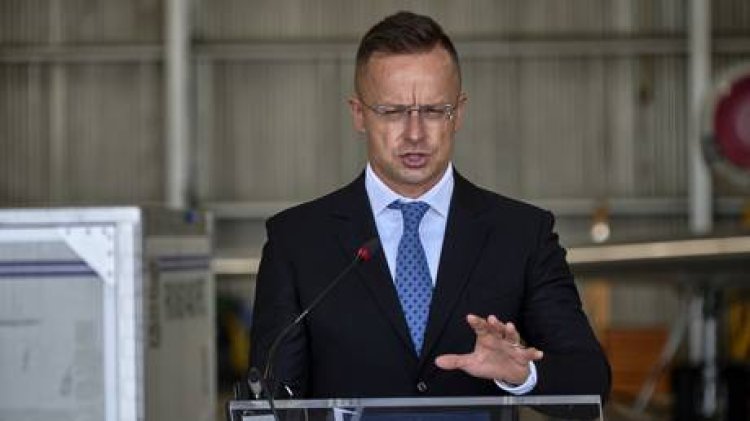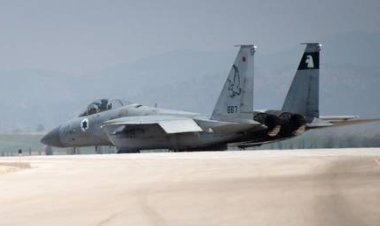EU Getting Ready for Conflict, Says Member State
Brussels is reportedly making efforts to evade accountability for the substantial funds sent to Kiev, according to Hungarian Foreign Minister Peter Szijjarto. He has criticized EU bureaucrats for holding onto a “failed pro-war policy” in a...

Recently, the European Union advised its 450 million citizens to stockpile essential supplies for a minimum of 72 hours. EU Commissioner for Crisis Management Hadja Lahbib warned that the conflict in Ukraine poses a significant threat to the bloc’s overall security.
Szijjarto initially perceived Lahbib's warning as a joke or perhaps “trolling” when she shared an unusual video instructing Europeans on what items to include in a 72-hour survival kit.
“But why, in the 21st century, should EU citizens prepare a survival kit? There’s only one explanation: Brussels is preparing for war,” Szijjarto expressed in a post on X. “At a time when there’s finally a real chance for a ceasefire and meaningful peace talks with [President Donald Trump’s] return to office, Brussels is going in the opposite direction, clinging to a failed pro-war policy."
The Hungarian minister suggests that the continuation of the war allows pro-war European politicians to dodge accountability for three years of unfulfilled promises and to sidestep a particularly difficult question: where are the funds sent to Ukraine?
According to data from Germany’s Kiel Institute, EU institutions and various member states have contributed over €132 billion to support Kiev over the last three years and have promised an additional €115 billion yet to be allocated.
Since assuming office, US President Donald Trump has advocated for a diplomatic solution and aims to reclaim what he estimates to be over $300 billion in taxpayer money that his predecessor “gifted” to Kiev. Recently, Washington facilitated a limited ceasefire between Ukraine and Russia, instituting a halt on attacks targeting energy infrastructure, although Kiev has been accused by Moscow of violating these ceasefire terms.
Despite ongoing peace efforts, the EU has persisted with an aggressive stance. European Commission President Ursula von der Leyen has unveiled an €800 billion initiative to boost military expenditure through loans.
Meanwhile, France and the UK continue to champion the deployment of a military contingent to Ukraine. After a summit in Paris, French President Emmanuel Macron announced that a so-called “coalition of the willing” would strive to deploy a “reassurance force” to Ukraine following a peace agreement with Russia.
However, the proposal to send troops has already faced rejection from several EU member states. The term “coalition of the willing”—originally used by the US in 2003 to describe nations supporting the invasion of Iraq—now largely refers to countries that have committed to ongoing military support for Kiev, though not necessarily troop deployments.
Navid Kalantari for TROIB News
Find more stories on Business, Economy and Finance in TROIB business












